Four Years Later, Canarsie is Keeping Pop Smoke’s Name Alive
- Oops!Something went wrong.Please try again later.
- Oops!Something went wrong.Please try again later.
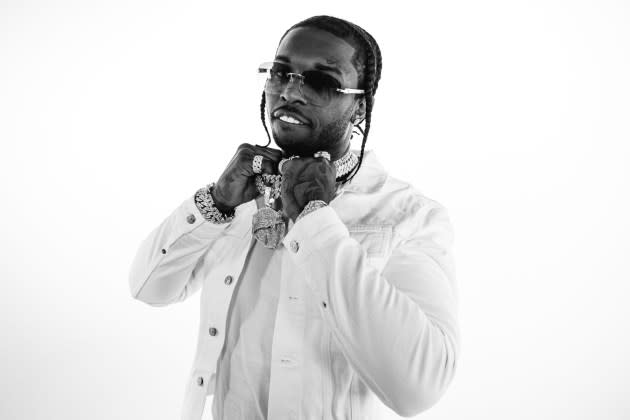
Only one train goes to Canarsie.
Private houses with driveways and backyards line most blocks in the remote Brooklyn neighborhood, nestled in the southeast corner of the borough, overlooking the waters of Jamaica Bay. Late 20th-century white flight turned this 19th-century suburban getaway into a predominantly West Indian lower-middle-class neighborhood. Perceptively “boujee-er” than New York’s average hood, by the 2010’s Canarsie got its nickname the “Flossy” or “the Floss” for its residents’ reputation of being flashy and showing off.
More from Rolling Stone
Jay-Z's 'Dead Presidents' Lexus Is on Display at Brooklyn Library Exhibit
Man Pleads Guilty to Voluntary Manslaughter in Murder of Pop Smoke
On the night of February 19th, 2020, the children of the Flossy painted the town blue. On an otherwise quiet, residential street, a crowd of young people gathered by the hundreds to the sounds of melodic growls and 808 drum beats. Candles burned on the corner beneath gold balloons that spelled out “O92,” a reference to the block East 92nd Street. A few young men in puffer jackets, elevated above the crowd, documented the scene from the roofs of their cars for their Instagram stories.
Their audience saw hundreds of young people packed together in the street forming clouds with their breaths and stars with their iPhone flashlights. The scene was scored by breakout hits from the past year like “Dior” and “Welcome to the Party.” High-pitched “woo’s” echoed through the night amidst exclamations of “Long Live Pop Smoke!” and “RIP bro!,” the voices behind the cameras cracking occasionally.
Earlier that morning, around 4 a.m, Bashar Barakah Jackson, the Canarsie native known as rapper, Pop Smoke was shot and killed in LA during a rental home invasion. It occurred at a Beverly Hills AirBnB owned by Real Housewives of Beverly Hills star, Teddi Mellencamp.
Prior to the incident, Pop Smoke and his childhood friend Mike Dee had accidentally revealed details about their location while posting on Instagram. Celebrity crime reporter, Mark Ebner says in episode one of 50 Cent’s Hip Hop Homicides that these signals may have tipped off the “knock knock” crew, an underground network of criminals in Los Angeles who routinely break into rich people’s homes and rob them at gunpoint.
The perpetrators were a group of five young Black males — three adults and two minors. The one who fired the fatal shots was 15 years old. “I don’t think any of these young perpetrators went into this situation thinking that someone was going to get… dead, least of all their victim,” Ebner says. Four men were charged in connection to the crimes. Two-faced arguably brief juvenile charges.
Tragically, Pop Smoke was only 20 years old at the time of his murder. He had made it out the hood, flew to LA to further the career he had built in record time, and suddenly, before reaching the climax, his story was over.
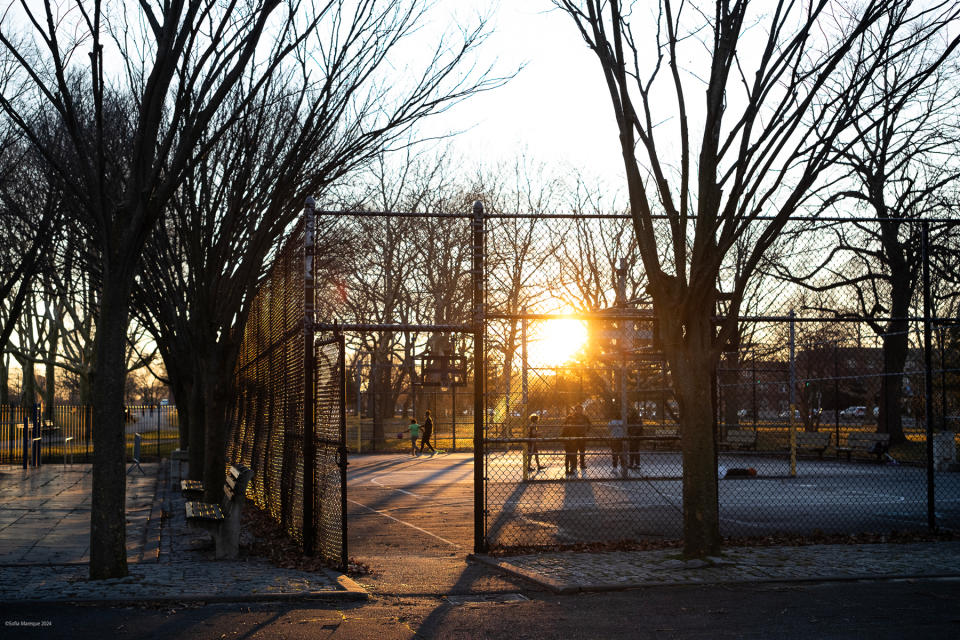
The video for Pop Smoke’s debut single “Welcome to the Party” has over 195 million views to date. In it, he’s riding along Flatlands Avenue in a bright red Ferrari, dancing with his friends and local children in front of “Peppa’s,” the jerk chicken spot. Gathered in a local pizza shop, Originals on Avenue L in Canarsie, his close friend recalled that this was a second version of the video. The original was filmed at a not-so-PG-13 house party. Canarsie, Brooklyn, a once relatively unknown neighborhood in NYC had officially been put on the map.
Pop’s mother, Audrey Jackson, is a 62-year-old, church-going, Jamaican woman who moved to Canarsie in the nineties with her Panamanian husband and first-born son. Shortly after the move, came the birth of her second son whom she raised in Canarsie his entire life. As a former teacher, students and faculty at Mrs. Jackson’s school would show her pictures of her son whom they knew as Pop Smoke with A-list celebrities. “Oh that’s wonderful,” she would say jokingly, looking at her boy in flashy outfits. She was just beginning to understand who her son was becoming in the eyes of others. “The students knew his work but I was clueless” she says, with her hands folded under her chin. “You’re supposed to be doing that. You’re supposed to be living,” Mrs. Jackson says reflecting on her son’s early success.
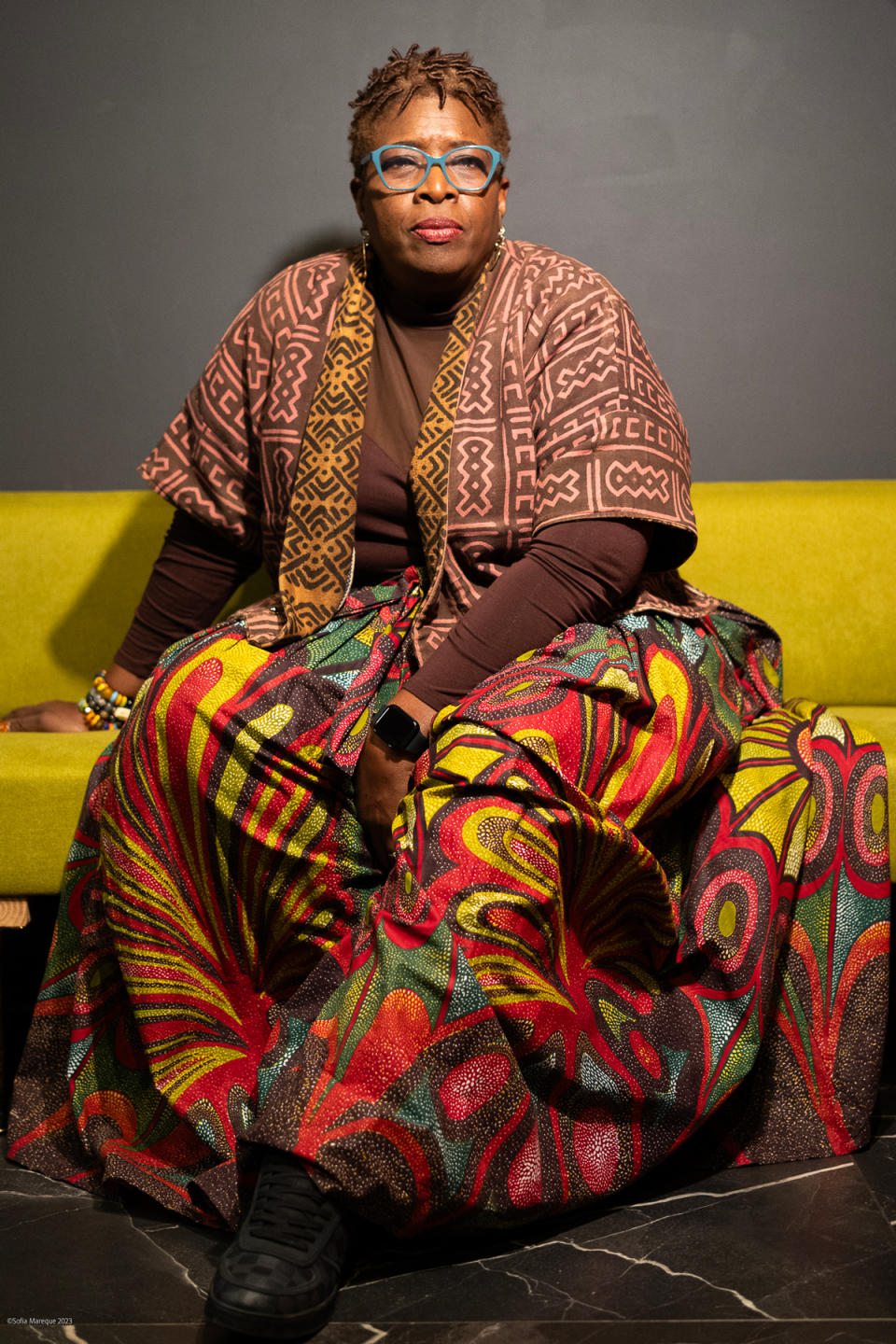
When a local legend, a son, a brother, and a regular on the Seaview Park basketball courts was taken from them never to return, the community lost a part of their identity and a source of their hope. Today, the smoke still lingers in Canarsie. Pop Smoke’s death sparked an unspoken commitment amongst neighborhood residents who knew and loved him to ensure that his essence, his vision, and his art will always live in the Floss, even if he no longer does. Bed Stuy has their Biggie, Crenshaw has their Nipsey, and in a sort of forcibly romanticized, beautifully twisted tragedy, four years ago, Canarsie gained their angel in Pop Smoke.
The little Bashar whose big muscles and deep voice seemingly came out of nowhere to his mother was somehow, simultaneously, the young Crip who redeemed himself from a viral slap on the streets of Brooklyn and later became Pop Smoke in the hood and later in the Hip-Hop world. His close friends Nappy Blue and Diddy maintain that “no one called him Bashar.” He was a dynamic individual whose relationships were a reflection of time, place, and circumstance. He knew who he was, but his perception belonged to those who experienced him. No longer here to continue building his legacy, those tasked with preserving his memory find themselves keeping different versions of the same person alive. When a community is forced to grieve publicly, the world is called to witness the complexity of remembrance.
Pop Smoke’s first mixtape Meet the Woo, released in July 2019, paints a hyper-specific and authentic image of his life in the streets of Canarsie with the Woo, or his affiliated friends whom he calls his lifelong brothers. Members of the brotherhood like Nappy Blue, 28, and Dread Woo, 24, are recurring characters in Pop Smoke’s musical universe. His brotherhood memorializes him in hashtags, Instagram bios, iced-out chains, song lyrics, posters, murals, entrepreneurship, and of course, by streaming his music. Nearly every encounter with the Woo in the physical and digital world is an encounter with the memory of Pop Smoke.
“I call Dread, that’s the new Tom Brady”
“44 BullDog”, Pop Smoke
Dread Woo met Pop Smoke in their early teens. Growing up, they played football together in Seaview Park, hence his other nickname Tom Brady. When he lost Pop in 2020, Dread started his music career to honor his legacy. “Everything he did gave me the green light,” says Dread. “If he could do it, I could do it.” In February 2021, Dread Woo released his debut album Smoke Will Never Clear. In the first track titled “Intro,” he writes, “Me and Pop was really stuntin’/ Billboards, we was up there/ Now I only see you in nightmares/ Damn I wish you never flew there.”
“I lost my brother,” Dread says. “It’s bigger than just rap or being Pop Smoke, we lost somebody.” He speaks in a low tone, nearly a whisper, sitting on a folding chair in the Canarsie Clothing Corner (CCC), a local clothing store opened in 2021. “He was about to go to the moon. That was the plan,” he adds, leaning forward with his chain dangling between his locs. The large diamond-encrusted letters, outlined in blue, read “O92 LLPS,” East 92nd Street, Long Live Pop Smoke.
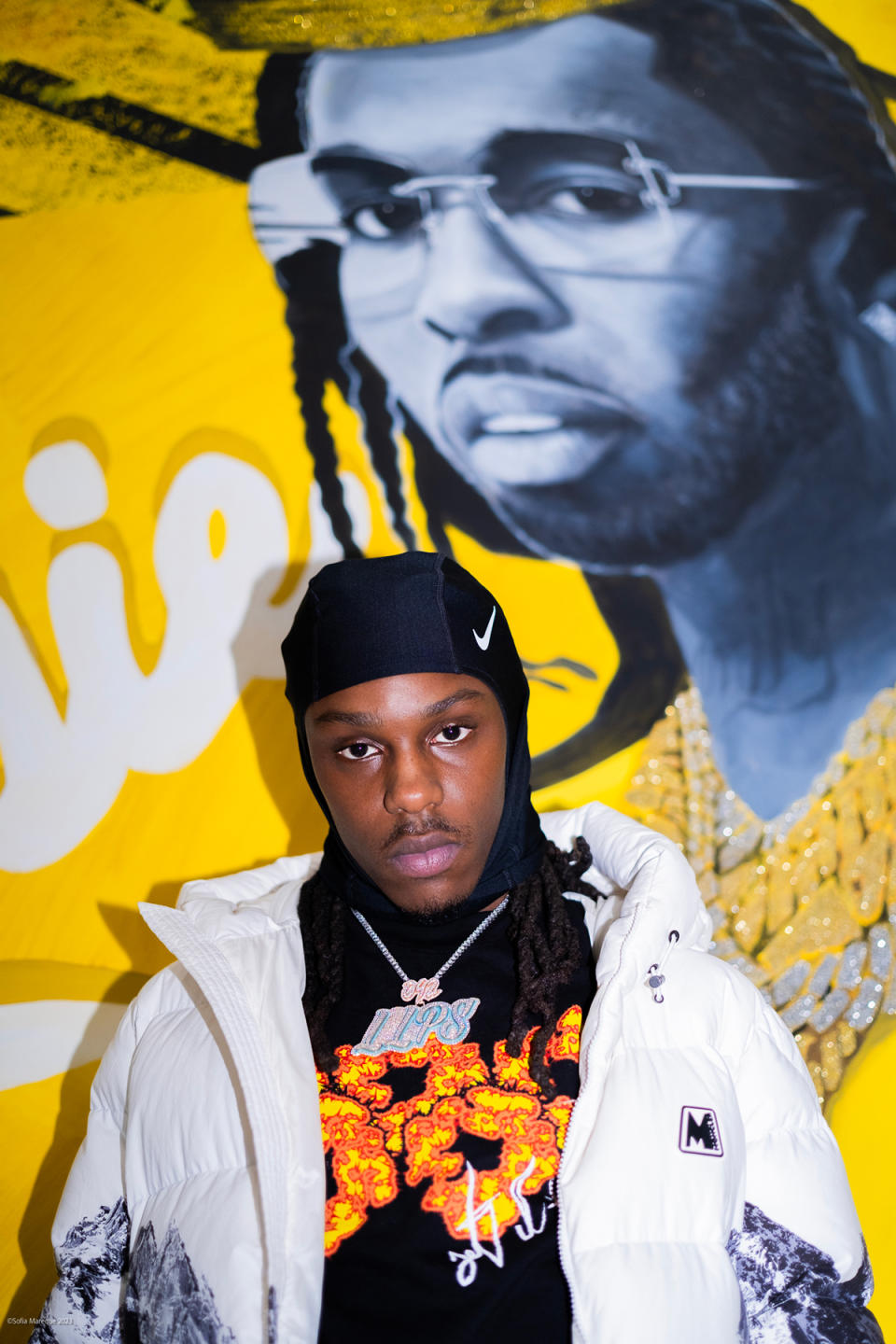
He poses for photos in front of the store’s main artwork, an impressive, bright yellow mural of Pop Smoke alongside a mirrored painting of the late LA rapper Nipsey Hussle, who was shot and killed in March 2019. Hussle was a respected Crip in the music industry and beyond, known for his commitment to serving his community. Also lost to gun violence, Hussle’s fan base memorialized him with the hashtag #TheMarathonContinues, mobilizing those who loved him to keep his legacy alive. Similarly, for those who loved Pop, they remind the world daily that “the smoke will never clear.”
“My boy’s name is still gonna be ringing bells. He’s still gonna have an impact on this world,” Dread says.
Beardaprince, more affectionately known as Bear, is a rapper and the owner of Canarsie Clothing Corner. He told News 12 that preserving Pop Smoke’s memory was part of his motivation for opening the clothing store and the restaurant immediately next door called “Bear Burgers.” Customers can order the “Woo Burger” or wings with a side of “Woo sauce” right next door to where they shop for streetwear.
Bear’s indoor art display is just one of several murals of Pop Smoke along Flatlands Avenue alone. The Flatlands and East 80th CTown market Pop rode past in the “Welcome to the Party” video now bears a commemorative mural of him alongside George Floyd and the late rapper DMX all painted by muralist Kenny Altidor. After Pop Smoke’s passing, CEO of the Canarsie Flossy Basketball League Ramel Young and Socrates Gilles, founder of the Canarsie Music & Arts Festival, worked with Altidor to commemorate the rapper in his own neighborhood because as Young says, “every hood celebrates their heroes.”
Both Gilles and Young grew up hanging out on East 92nd Street, where Pop Smoke spent a lot of his time. It was intuitive to them to create a tangible memorial for the rapper because of what he had only just begun to do for his community. “His energy, it transformed Canarsie,” Gilles says. More than just an artist, Pop Smoke became a source of hope for people in his hometown. Seeing someone from the same hood as them garner such rapid success so young, motivated and empowered other Canarsie residents, especially other upcoming rappers, to pursue their goals with renewed energy. “It made a lot of people who fell off the music want to go back into music,” says Gilles. He continues, “Canarsie got a buzz going and there was a resurgence of ‘yo, you know, somebody else can make it out of here,’” Gilles says.
Even as he was gaining traction and popularity, Pop Smoke always showed love to Canarsie, in other words he never “went Hollywood.” He made it a point to come home and do what he always did; spend time on O92 and play basketball at Seaview Park like he did growing up playing in Young’s tournaments. “He was already a big artist, but he’s been coming to my events for so long,” Young says. “I have his publicist, she calls me like ‘yeah, he has to be somewhere but he said he’s gonna miss it because he has to go to your game’… like wow, bro…word Pop? for me bro?”
Less than a month after Pop Smoke died, the world was put on pause during the Covid-19 pandemic. By May 25th, 2020, the murder of George Floyd dominated political discourse and by the summer, nothing was normal. Like the rest of New York City, Canarsie had been on lockdown and basketball rims had been removed from local parks. On July 20th, 2020, Pop Smoke’s birthday, halfway through an unprecedented year, Young started the first annual “Pop Smoke Day,” which in its first iteration was a celebration of Pop’s life with music and basketball on the Seaview Park courts. After a long period of mourning intensified by a global pandemic, he wanted to lift his community’s spirits. “Let’s come out and celebrate our hometown hero,” thought Young.
Many of the same young people who gathered on East 92nd Street on that cold February night five months prior came outside again, this time to celebrate life. Although they were still mourning, the “woo’s” that echoed were more joyous on what would have been Pop’s 21st birthday. Pop Smoke Day has since been adopted and reimagined by Pop’s mother and The Shoot for the Stars Foundation which she manages. It still brings hundreds of young people out to the local park for music and basketball but has been extended into a three-day educational experience and celebration of life.
Since 2022, Mrs. Jackson and the foundation have introduced community engagement opportunities to the July festivities, including tending to a local food garden and facilitating anti-gun violence workshops and discussions, according to Mrs. Jackson and the foundation website. Mrs. Jackson has been very outspoken about combating the injustices that face Black and low-income communities across the country and ultimately contributed to her son’s death.
Pop Smoke’s premature death is yet another reminder of how young Hip Hop artists’ careers are often cut short by gun violence or incarceration. In the past five years alone, the industry has lost King Von, 26, Young Dolph, 36, PnB Rock, 30, and one-third of the iconic rap group the Migos, Takeoff at 28, to name a few, all due to senseless gun violence. While this is often mistakenly attributed to the genre, the music itself is a reflection of an epidemic of Black male mortality and the consequences of systemic inequality.
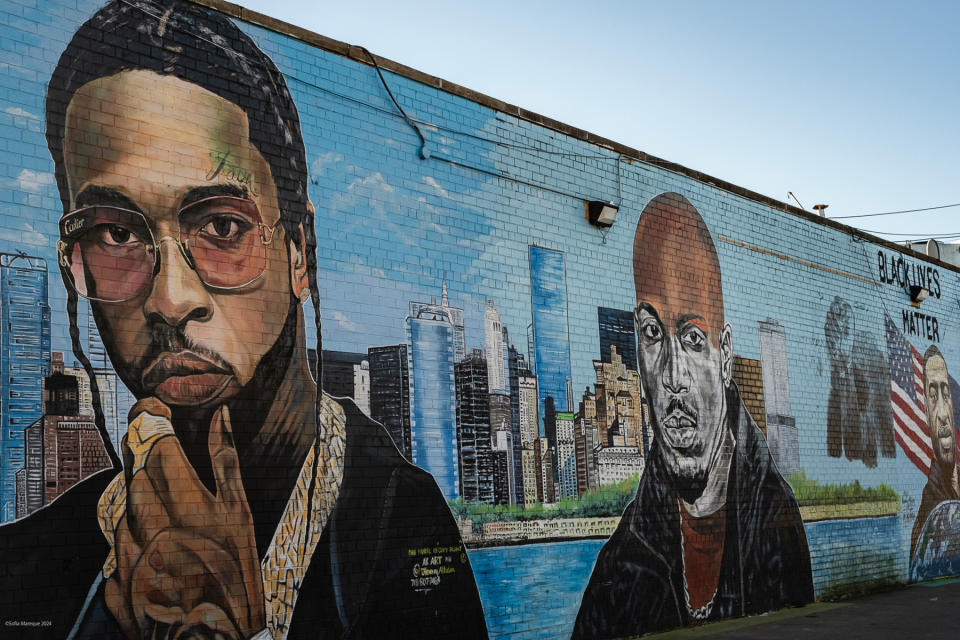
A study by the Journal of American Medical Association that examined trends in firearm fatalities in the United States found that firearm deaths among Black men were at an “all time high”, with Black men aged 20-40 being the most at risk, while the Center for Disease Control and Prevention reported in 2018 that the leading cause of death for Black males from the ages of 1 to 44 was homicide. Pointing to a 15-story building lit up by the warm glow of lights emanating from each small window, Pop’s mother imagines what it would look like if each family who lost a loved one to gun violence, just in that building, let alone the rest of the block, mourned their deaths as publicly as she has to mourn the loss of her son.
She pictures a Canarsie, and ultimately a society where community members commemorate those lost to violence with “annual celebrations of their essence.” She believes that “people would think twice about harming somebody else because everyday, there would be a celebration of life.” In part, she blames capitalism and Westernization for promoting a culture where productivity is prioritized above remembrance. People are subtly encouraged to forget the ones they’ve lost after a few days of paid time off. The sentiment is that they can only afford to forget. “What’s happening with Shar is that we’re remembering,” Mrs. Jackson says.
As soon as her son passed away, Mrs. Jackson immediately took over his foundation, Shoot For The Stars, which he started in January 2020 only a month before he died. The foundation was part of Bashar’s plan to give back to his community and pour more resources into education and the arts in Canarsie. “I don’t get to grieve, because the minute he left here he became a business that had to be managed” she says.
For Jackson, the best way to keep her son’s name alive is by being proactive. Through her work with the foundation, collaborating with 50 Cent on his second posthumous album Faith, and taking over Pop Smoke Day from Ramel Young and turning it into a festival in the third week of July, the retired schoolteacher deliberately keeps herself too busy to sit in her pain. “I’m doing everything he told me he was going to do,” she says. “You can’t just say his name,” she pauses, “and then what?”
In Mrs. Jackson’s eyes, many of these young men who post about Pop Smoke on social media, and make music to commemorate him are more interested in fame than in completing the mission her son set out to accomplish. She struggles to recognize their behavior as acts of remembrance but rather an extension of how she believes they saw him during his life, as “a meal ticket.”
“They only knew Pop Smoke. They never knew Bashar” she says.
“Big Nappy Blue, that’s the cig homie and we gon’ hurt you if you touch him (‘Nough said!)”
“MPR”, Pop Smoke
Yet, his brothers like Nappy Blue say they would have done anything to keep him alive. Reflecting on the night Pop Smoke died, Nappy Blue says “I really wish I was there. If I was there, Pop would still be here.” He continues, “I have a big poster of him in my house. Everyday I walk out my room and it’s the first thing I see; like damn, I wish I was there. I would have probably been gone, he would’ve still been rapping.” Nappy Blue would’ve been okay with that sacrifice. As if speaking to his friend, he adds, “you’re young and you’re already doing it. You can get further than me. I know for a fact you would look out for my family.”
Sitting side by side with Diddy, another brother, in a local pizza shop on Avenue L, as it seems the Woo never travel alone, the two pondered on the question: “What is the biggest thing that was lost when Pop died?” Almost instantaneously, as if they shared one mind, the two looked at each other and said, in unison, “Us.”
Despite his loved ones knowing different versions of him in life, certain parts of Bashar’s personality were immutable and consistent in how they remember him. He was playful, confident, flirtatious, and had a habit of barging in on his loved ones. “Pop was a headache,” Nappy Blue recalls. “Every day he came back from the ‘stu’, he would knock on my window and play a new song. He didn’t give a fuck what I was doing” he says, smiling and shaking his head. His mother also remembers how their conversations, whether they were about girls or his latest song, would usually begin, “when he was ready to talk to me he would come in the room and get in front of the mirror and start flexing, and that’s how I knew a conversation was coming,” Mrs. Jackson remembers.
Experiencing a change of heart, in real time, Mrs. Jackson later remarks, “I feel bad now for saying they lost a meal ticket.” She reflects on the circumstances of her son’s passing, how, in no time, after losing Bashar, everyone was forced into isolation because of COVID. She wishes she had the opportunity to hold what she calls “sacred space” with the young men who were active in Bashar’s life in those early days of grieving, perhaps then she might have been able to see their actions as genuine forms of love and commemoration instead of an eagerness to maintain their association to him for fame.
Although she says now that she is more willing to embrace a more nuanced narrative about “the friends of Pop Smoke.” She still believes that the best way to continue her son’s legacy is to pour into the work of the Shoot for the Stars foundation. She acknowledges now, that how the Woo chooses to remember “could be a generational thing of how they define support or legacy, but [when it comes to the foundation] the door is open.”
Here is a portrait of a mother and a brotherhood missing their link. Despite some inherent tension, there is a consensus that they were robbed of a bright light; and a range of emotions come through in their recollection of his short life, even shorter career, and his untimely death. This is what their grieving looks like.
At the same time that Pop Smoke was a respected leader amongst young men in the streets, he was in his mother’s eyes, the same little boy who used to write and perform songs in church with his three backup singers whom she called “the Sharettes,” one of whom she remembers him “marrying” during rehearsals at eight years old. The same artist that fans see rapping confidently to his opposition in bulletproof vests, is the Pop that music video directors remember dancing and goofing off between takes.
Pop Smoke was dynamic, beloved, and robbed of the opportunity to continue evolving and redefining himself. Instead, his community’s separate acts of commemoration form a mosaic of who he was.
Bashar Barakah Jackson was 20 years old with a 14-month-long career when he died. He spent his time on earth shooting for the stars and aiming for the moon. Some might argue that he succeeded, while others debate whether he was taken too soon to tell; but in Canarsie, there’s no debate that he was a legend. Capturing the unspoken sentiment of Canarsie, Dread Woo makes a promise that “the smoke will never clear.”
Best of Rolling Stone

